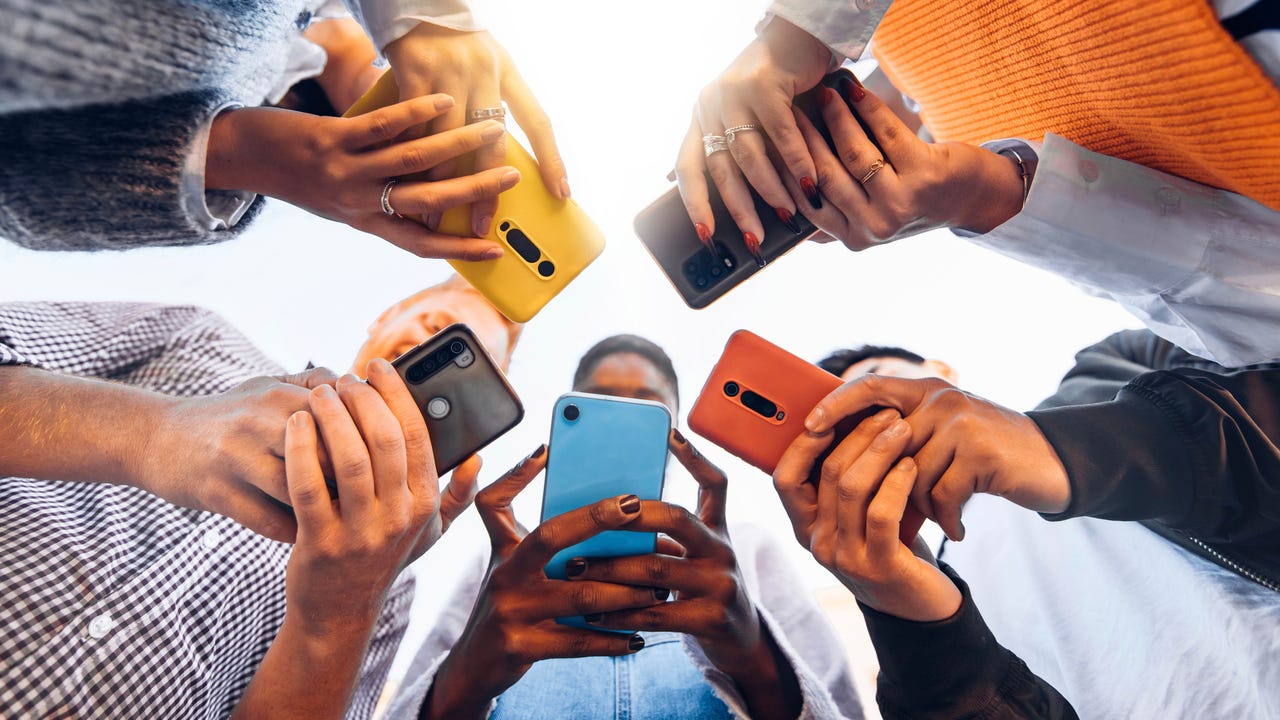































 Kar-Tr/Getty Images
Kar-Tr/Getty Images About seven out of 10 Americans use social media to keep up with each other's lives, for entertainment, and to stay on top of the news, according to the Pew Research Center. But as many people reach a decade or more of perusing mainstream social media sites, such as Facebook, Twitter, and Instagram, their attitudes toward social media are shifting.
That's not to say people are living more of their lives offline, but that people are instead shifting their online presence from general social-networking sites to more niche ones that pander to their interests and encourage online social interaction beyond likes and reposts.
Also: US Surgeon General releases social media health advisory for American teens and tweens
Sites like Twitch, Discord, Reddit, and TikTok encourage people to interact with the content they care about and connect with others, whether they're talking about food, gaming, movies, or TV shows.
To support this focus on their interests, people are turning to micro-social networks, which are specific to one topic and include fewer users to interact with.
LinkedIn is a mainstream micro-social network because its only purpose is to connect with people about professional topics. BeReal is another example of a micro-social network, as it encourages people to only connect with people they know personally and share updates about their lives.
Also: LinkedIn introduces AI tool to make curating your profile easier
Nextdoor, another micro-social media network, is a digital space where people share updates about local events or happenings.
So, how can you create your own micro-social networking atmosphere online? Group texts that include both iPhone and Android users can be messy and laggy, and private groups on mainstream social media sites exclude those who don't have an account. Here's two alternatives.
In a WhatsApp group, users can add up to 256 people and control who is in the group. Users can send text messages, GIFs, photos, videos, and documents. And because WhatsApp is available in the Play Store and the App Store, the app is available for iOS and Android.
Also: WhatsApp users can now use Chat Lock to secure private or sensitive chats
WhatsApp is also ideal for any social groups that span borders, as sending messages and making calls internationally on WhatsApp uses your device's internet connection instead of minutes.
A WhatsApp group is best suited for people who want to mimic a group text without the technical difficulties that can arise for Apple users when texting an Android device.
If you're interested in sharing photos with a group of family or friends, consider creating a shared photo album on Google Photos.
Third-party apps -- rather than Apps connected to the device operating system -- are better to use in groups of people that mix iPhones and Android phones. That's because Apple makes a point that only its products, apps, and services work best within its device ecosystem. So, sharing an Apple Photo album with Android users could prove difficult.
Also: How to set up a locked folder in Google Photos on Android
Google Photos works well on iOS; users can share one album with multiple people. Each added person can upload photos, look at photos someone else has uploaded, and leave comments on each photo.
PhotoCircle is another photo-sharing app, but it has an emphasis on sharing shots from an event or occasion. For example, if you're attending a wedding, you can share photos from the wedding with guests and participants. If you work with people around the country, a shared PhotoCircle album makes it easy to share project-related photos.
Also: 7 ways you didn't know you can use Bing Chat and other AI chatbots
Users can leave comments on photos shared in a PhotoCircle album, all photos are backed up in PhotoCircle's cloud, and only people with access to the album can see the shots. Shared photo albums and photo-sharing apps are best for people who prefer sharing photos to sending messages, making calls, or sharing videos.
 Tags quentes :
Negócio
Redes Sociais
Tags quentes :
Negócio
Redes Sociais